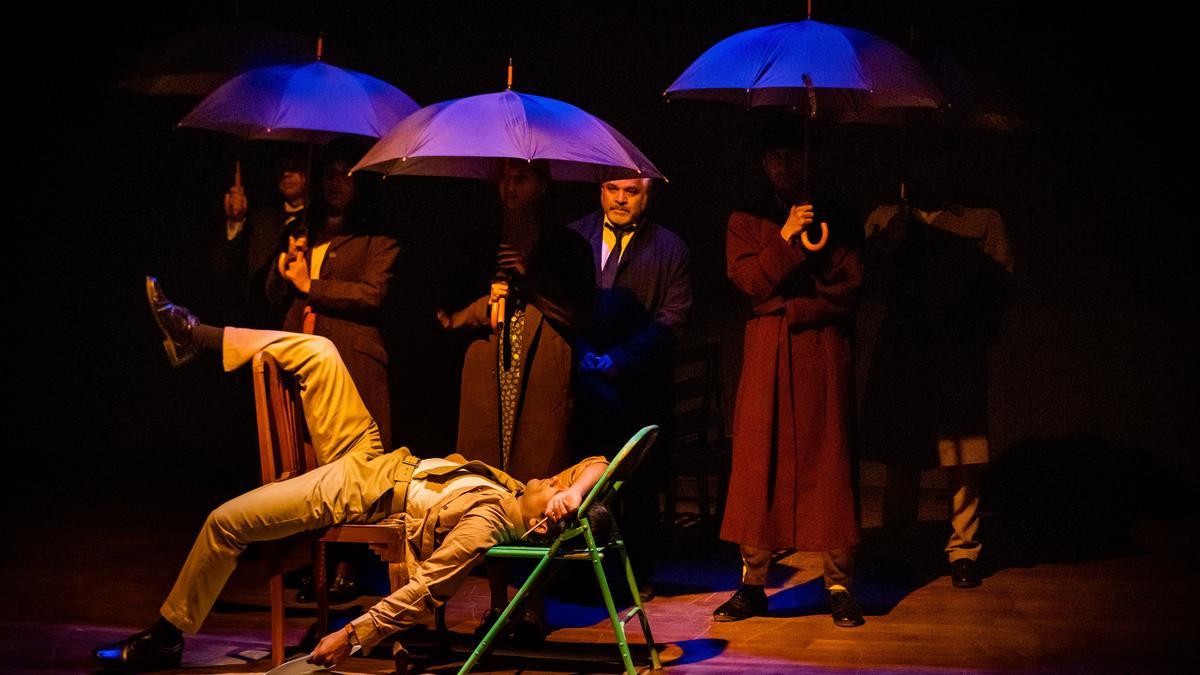
Among the varied challenges that can be crafted for a protagonist by the creative mind of a writer, an unreliable memory conjures a realm of intriguing possibilities. This is precisely the foundation on which the psychological thriller ‘Bougainvillea’ is built. At its core, the film presents Reethu, portrayed by Jyothirmayi, a character whose grip on reality is tenuous at best. Throughout much of the narrative, viewers find themselves questioning the authenticity of events as experienced through her eyes—be it the painting of a Sunflower or yet another Bougainvillea.
This uncertainty, a reflection of Reethu’s flawed memory due to a case of retrograde amnesia following a road accident eight years prior, is perhaps where the film shines momentarily. Her husband, Royce, played by Kunchacko Boban, becomes a symbol of gentle care, much like his approach at the hospital where he works. However, their delicate domestic harmony shatters with the arrival of a police investigation concerning a missing girl that soon entangles their lives.
The narrative of ‘Bougainvillea’ stays largely faithful to its source material, Lajo Jose’s novel ‘Ruthinte Lokam’. Through this adaptation process, the film sometimes manages to surpass its literary counterpart. The director, Amal Neerad, brings his signature visual flair and complex sound design to the forefront, particularly in the depiction of Reethu’s memory lapses. Such moments, enhanced by Jyothirmayi’s nuanced performance that captures her character’s helplessness mixed with doubt, add depth to the film.
Despite these strengths, the film is tethered by certain inherent weaknesses inherited from the novel. A few pivotal elements—an unconvincing twist and gratuitous bursts of violence towards the film’s conclusion—detract from the overall experience.
. Yet, the gradual build-up during the investigation that delves deep into Reethu’s fragmented memories provides a substantial anchor, holding significant portions of the narrative together.
This investigation element, illuminating Reethu’s recollections—or the lack thereof—comes at a perfect time, following closely on the heels of another memory-centric investigation piece, ‘Kishkindha Kaandam’. Such themes resonate well within the current cultural milieu, engaging audiences with the perplexities of memory’s unreliable nature.
Nonetheless, Amal Neerad is no stranger to challenges in concluding films that start with strong narrative foundations. Observers of his work might note this as a recurring theme, except in notable exceptions like Varathan. In ‘Bougainvillea’, the issue reemerges as the intricately crafted build-up leads into a climax that feels anticlimactic and lacks efficacy. Additionally, the subplot concerning the villain’s grandfather seems to be awkwardly inserted, diminishing the overall coherence even further. The use of the famous line “the greatest trick the devil ever pulled” from the film ‘The Usual Suspects’ stands out unpleasantly, more as a distracting homage than an integral element of the storytelling.
Returning to the cinematic scene after almost a decade, Jyothirmayi impressively carries a significant portion of the film on her shoulders, while Kunchacko Boban’s performance appears only partially convincing at times. Unfortunately, despite their established reputations, actors Fahadh Faasil and Sharafudheen seem to have been cast more for marketing prominence rather than substantive roles within the film’s storyline.
Ultimately, ‘Bougainvillea’ emerges as a psychological thriller that doesn’t fully meet its potential, hampered by imperfections mirrored from its literary origin. Yet, for those intrigued by psychological complexities and the fragility of human memory, the film provides moments worth contemplating. Now screening in theaters, ‘Bougainvillea’ offers an opportunity for audiences to delve into this complex exploration of mind and memory, though it stops short of delivering a thoroughly satisfying cinematic experience.










